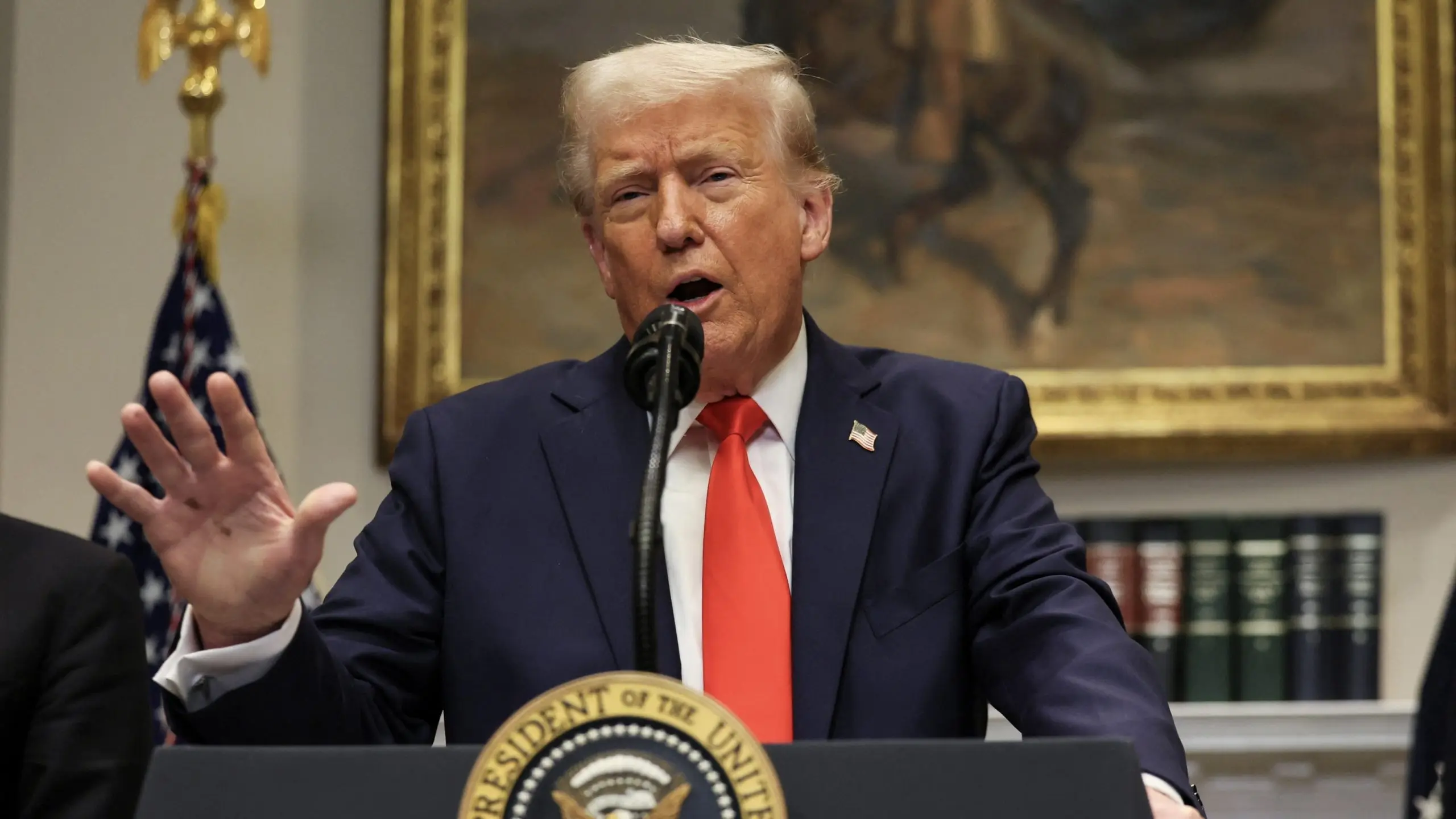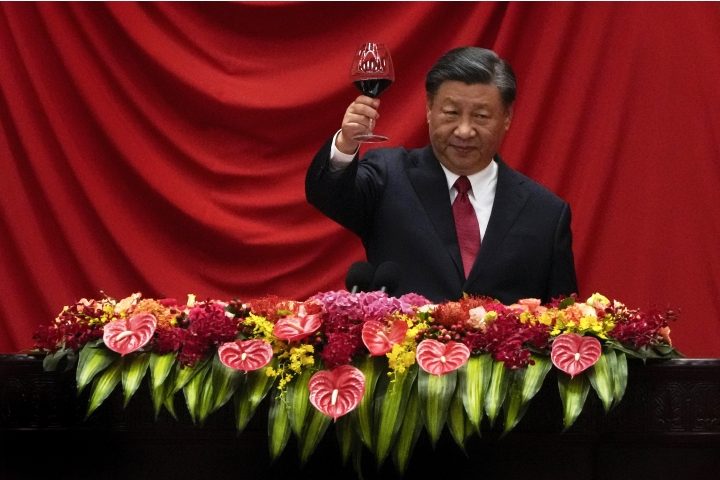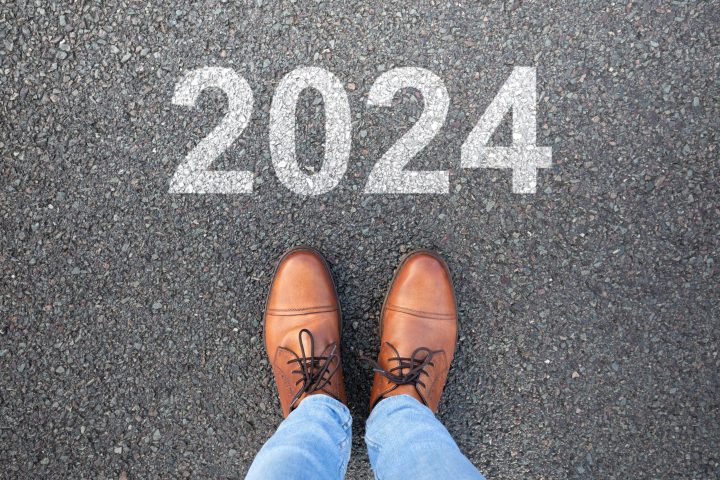
2024 would be a year marked by three major elections, at least according to China.
At the start of the year, the Taiwanese elections in mid-January harbor the prospect of rekindling tensions about the future of the self-governing island. The communist regime in Beijing views Taiwan as a renegade province to be reunited with the mainland, by force if necessary.
Already, Beijing has been facing accusations of meddling in the island’s January elections, with Chinese state-owned airlines touting heavily discounted flights to help people return to the island to vote.
Flights on 10 airlines, mainly Chinese government-controlled, have been discounted by as much as 70 percent in a promotion broached by the Association of Taiwan Investment Enterprises on the Mainland (ATIEM), a group associated with China’s Taiwan Office.
“The ATIEM is a united front organization that helps China mobilize Taiwanese business groups,” the think tank Taiwan Economic Democracy Union penned in a statement.
“Beijing obviously has great influence over it.”
“If Taipei lets the ATIEM assist Taiwanese business groups to return for voting with cheaper air tickets, it is letting the Chinese Communist Party intervene in Taiwan’s election.”
Some have contended that Beijing’s measures are to promote the participation of as many pro-Beijing Taiwanese as possible in January’s election.
An official document obtained by ABC News disclosed that such discounts were exclusively aimed at Taiwanese residents in mainland China.
Taiwanese election rules mandate voters to cast their ballots in person, with no provisions for postal voting for those living overseas.
Policymakers in both Beijing and Washington are poised to monitor the developments surrounding Taiwan’s election, with the island’s incumbent Democratic Progressive Party (DPP) and leading opposition Kuomintang (KMT) running a tight race according to opinion polls.
A four-year term under the pro-independence candidate William Lai Ching-te or a pro-Beijing KMT could drastically alter Beijing’s geopolitical considerations regarding Taiwan.
Lai, whose party supports the status quo of de-facto independence, is tipped to emerge victorious in January’s election, indicating that cross-strait tensions with Beijing will likely remain high.
Moreover, the outcome of Taiwan’s upcoming January 2024 election is scheduled to have major ramifications on Sino-U.S. ties. The United States is obliged by its own laws to treat all threats to Taiwan as a “grave concern” and supply the island with the necessary arms to defend itself.
Security analyst Euan Graham, of the Australian Strategic Policy Institute think tank, admitted to 9news.com.au that “China, like it has for a long time, will try to influence the outcome.”
While China may continue its pugilistic military drills, sending its naval and air forces around Taiwan in the leadup to the elections, Graham thinks China will refrain from direct military action.
“I don’t think China will try military provocation intentionally with Taiwan because it knows it is very likely to draw an American response.”
More worrying, Graham admitted, is the potential of escalating tensions in the disputed South China Sea between China and neighbors such as the Philippines, sparking a military response by the United States and Australia.
China claims virtually the entire strategic waterway, but the Philippines, Vietnam, Malaysia, Brunei, and Taiwan have also staked their separate claims.
For the past two decades, China has been occupying several obscure reefs and atolls far from its shoreline across the South China Sea, constructing military installations, including runways and ports.
The three-million-square-kilometer South China Sea waterway is crucial to international trade, with an estimated one third of global shipping, worth trillions of dollars, traversing annually.
2023 saw tense face-offs between Chinese and Philippines coast guard vessels, including a Chinese vessel employing a water cannon against a Philippine re-supply ship.
“There’s a high chance of bringing in the Americans through their alliance with the Philippines…. It also directly affects Australia because Australia has critical interests in the South China Sea, and has been increasing defense cooperation with the Philippines.”
For one, Filipino President Ferdinand Marcos, Jr. has declared that the Philippines will continue asserting its rights in the South China Sea, following warnings from China to the country against causing “trouble” in contested waters.
The Southeast Asian country “remains a force and voice of reason” notwithstanding “many attempts at provocation,” Marcos proclaimed in a statement quoting his speech before the military on December 21. He added that his country illustrates “responsible and dignified behavior in resolving issues in accordance with international law.”
On December 19, Marcos admitted that a “paradigm shift” was required in how his country approached the South China Sea, as diplomatic ties with Beijing were headed in a “poor direction.”
Both Chinese and Filipino vessels have clashed in the South China Sea at various times in recent months. Manila has protested what it slams as Beijing’s harassment, while China has insisted that its actions were lawful.
In March 2024, China’s largest neighbor, Russia, will also host its election. As Ukraine’s counteroffensive against Russia has thus far failed to achieve any significant military gains, Russian President Vladimir Putin’s reelection is all but certain. Without a viable Russian opposition, pundits and the world can anticipate six more years of Putin in the Kremlin, with some continuity in Russia’s domestic and foreign policy agenda.
Although there is a general worry among Kyiv’s Western backers that China might help the Kremlin militarily, there are hopes in the West that China’s clout will restrict Putin’s policies in Ukraine and beyond.
Across the Pacific, the prospect of Donald Trump returning as U.S. president in November 2024 could send already frosty Washington-Beijing ties further south.
During his previous term as U.S. president, Trump slapped tariffs on Chinese imports and riled Beijing by alluding to the coronavirus as “the Chinese Virus” and blaming the Chinese Communist Party (CCP) for its spread.
Riding on suspicions of China especially since Trump took power in 2016, the leftist administration of Joe Biden has officially barred the exports of advanced semiconductors and related complex equipment to China, citing American security concerns.
Yet from another perspective, a return of Trump could geopolitically benefit China, given Biden’s maintenance of Trump-era tariffs, additions of new export controls, and boosting U.S. alliances.
If Trump’s victory in 2024 means an American withdrawal from regional and global alliances, that could be in the interests of China’s rulers, who feel threatened by American power.
If the 2024 election results of Taiwan and the United States pan out as mentioned above, China will respond based on its own geopolitical interests, particular in regard to its economic outlook and domestic political landscape. On its end, it is likely that Beijing will continue to champion multipolarity, as the CCP regime views such an approach as a good way to manage its volatile relations with the United States and other key regional players such as Russia and Taiwan.






















































